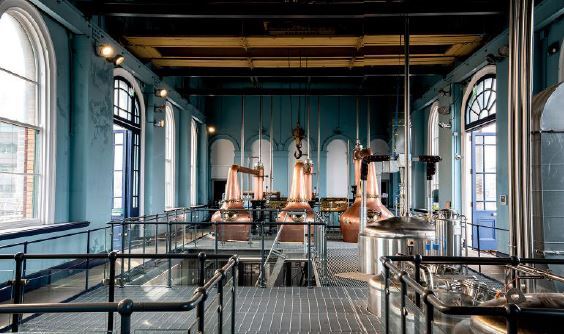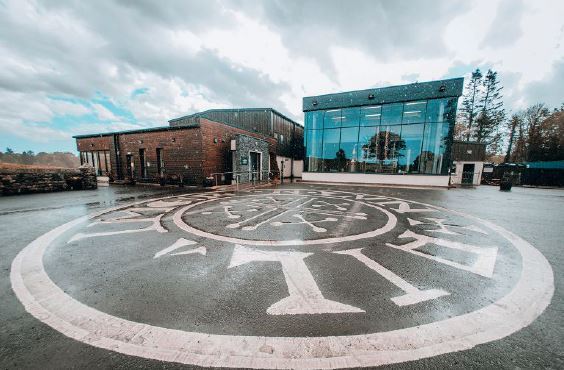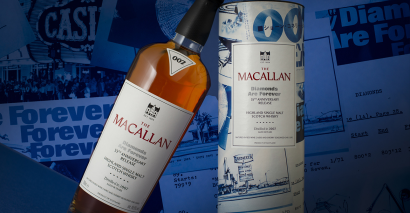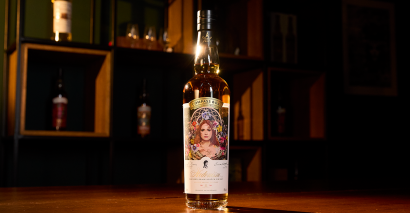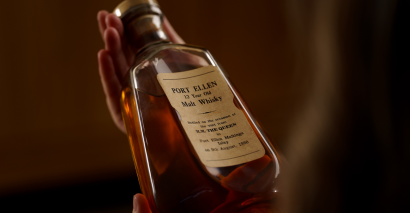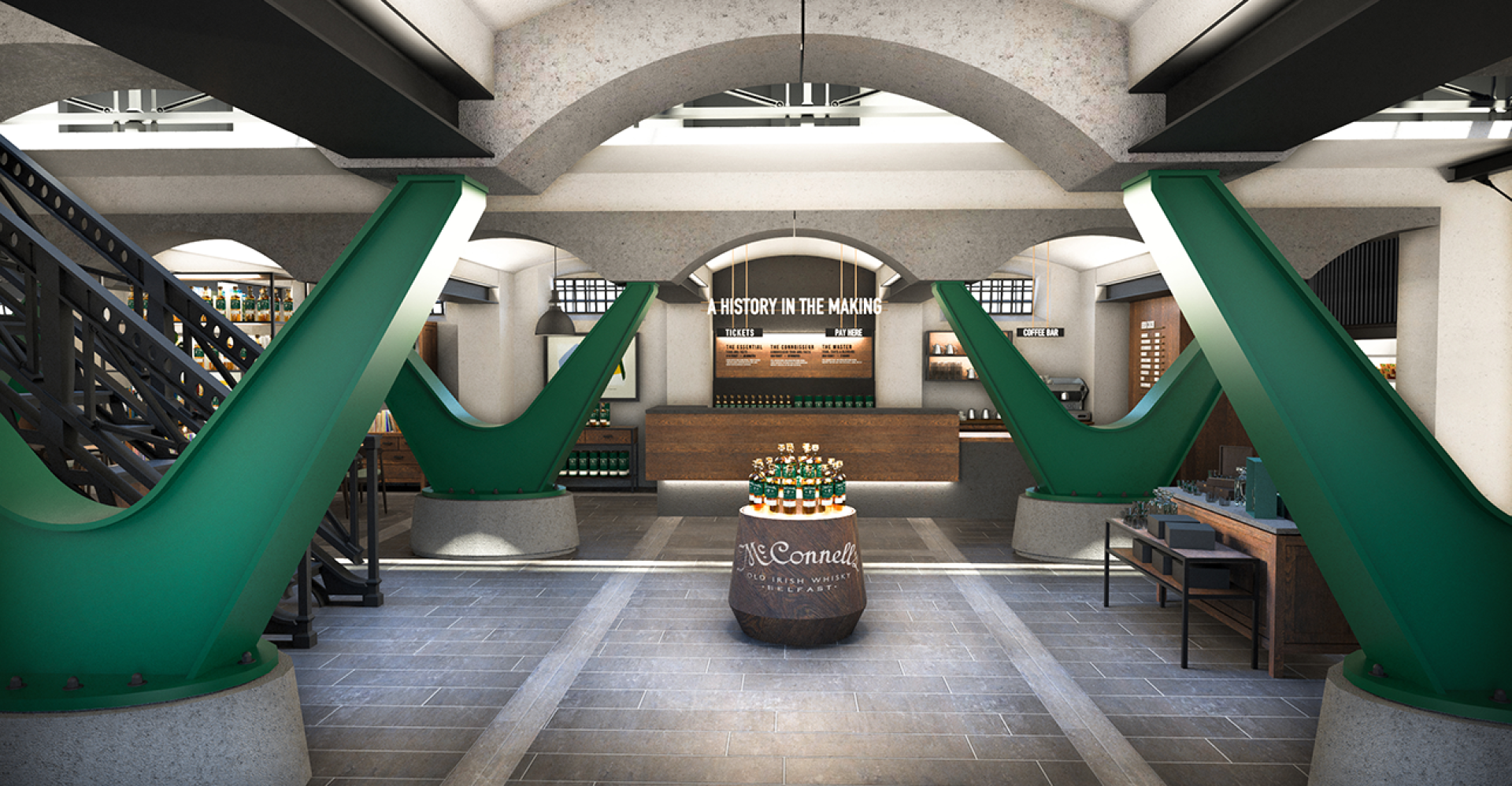
Belfast Distillery Company revived the city's legacy brand McConnell's.
Amid all the excitement over Ireland’s whiskey renaissance, Northern Ireland is frequently overlooked. While sectarian differences have long separated the North from the Republic, both sides share many things in common—not least of which is a formidable pedigree in whiskey. If Dublin was the epicenter of global whiskey making in the late 19th century and the early 20th, Belfast in the north was its great rival. The biggest Belfast whiskey names—Dunville & Co., J.&J. McConnell, McElvey, Cromac, Avoniel, and Royal Irish—were vast facilities, exporting millions of barrels of their whiskeys around the world. Their immense bonded warehouses were an imposing presence on the city’s vibrant commercial landscape.
1 Scott’s Irish Whisky
2 Boatyard Distillery
3 Wild Atlantic Gin School & Distillery
4 An Carn Derry (under construction)
5 Old Bushmills Distillery
6 Glens of Antrim Distillery
7 Glens of Antrim Distillery (under construction)
8 J&J McConnell’s Distillery (under construction)
9 Titanic Distillers at Thompson Dock
10 Hinch Distillery
11 The Echlinville Distillery
12 Rademon Estate Distillery
13 Killowen Distillery
It all came to a crashing halt by the mid-1930s, snuffed out mainly by U.S. Prohibition along with trade war difficulties, just as would occur later in Dublin. But in recent years, the spirit of Belfast’s whiskey vibrancy has been reawakening. In the Titanic Quarter by the city’s waterfront, Titanic Distillers has converted the Thompson Dock and Pumphouse into a new distillery, close to the slipway where Titanic was launched—and right by the must-see Titanic Belfast museum and Titanic Studios, famous for making HBO’s “Game of Thrones.” Across town, Belfast Distillery Company, the team reviving the once-formidable Belfast legacy brand Mc- Connell’s, built J&J McConnell’s Distillery inside the old Crumlin Road Gaol, a Victorian-era prison that today serves as a tourist attraction. The first distillate will come off the stills this fall (at present, McConnell’s is sourced from Great Northern Distillery), and a visitor experience ultimately aims to attract 100,000 people a year.
But distilleries have been popping up all around Northern Ireland, in a manner similar to the Irish Republic’s whiskey revival. Some 20 miles east of Belfast in the beautiful seaside town of Donaghadee is Copeland Distillery. This new craft player has been laying down double-distilled single malt since 2019, and currently sells its sourced Merchants’ Quay blend. About 15 miles further down the coast is Echlinville Distillery. Launched in 2013 by farmer and businessman Shane Braniff, Echlinville is the modern custodian for some of Northern Ireland’s most historic whiskey names—most famously the old Belfast brand Dunville’s, but also Old Comber and Matt D’Arcy & Co. Ltd. It makes whiskey, gin, and poitín from its own floor-malted barley.
Inland at Ballynahinch, Hinch Distillery is definitely not to be missed, as visitors can view its impressive copper-topped mash conversion vessel and lauter tun, six stainless steel washbacks, and three copper pot stills, all overlooking a courtyard and brasserie. Hinch is located on Killarney Estate and is available to book as a wedding venue. Eight miles south is Rademon Estate Distillery, launched in 2012 and distilling since 2015. Thus far, Rademon has bottled two expressions under its Shortcross label: a single malt, and rye and malt made from a mashbill of 100% Irish malted rye and malted barley. All the way south to the border lies Killowen, another tiny but exciting craft distillery where distiller Brendan Carty uses direct-fired stills with worm tub condensers to make single pot still whiskey.
Amid all this change, Bushmills remains by far the most famous name in the North, as well as its largest and oldest distillery. A trip to Bushmills takes you to the top of the Emerald Isle near the pounding waves of Ireland’s north Atlantic coast. Bushmills recently doubled its production with a second distillery complex, a project that began in 2019. Alex Thomas, who created The Sexton single malt for Bushmills, has taken over the master blender reins from Helen Mulholland, who’s now with Lough Gill Distillery in Sligo. Bushmills’ recent successes have been its 12 year old, which earned a spot on our 2022 Top 20 Whiskies of the Year list, as well as the 25 and 30 year old additions to its core range, which have greatly bolstered Irish whiskey’s credibility in the ultra-aged whiskey space.



